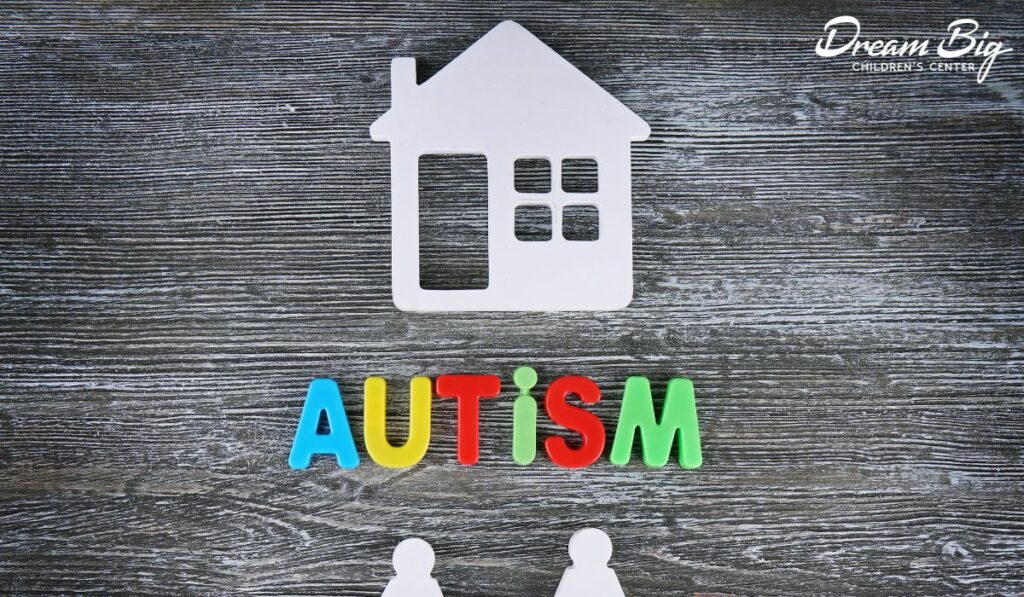Navigating Insurance for Autism Services
Learn how to effectively navigate insurance for autism-related services.
In today’s digital age, screens have become an integral part of our daily lives.
From smartphones and tablets to computers and televisions, screens are ubiquitous, and it’s not unusual to see children engrossed in digital devices for hours on end.
As screen time among children continues to rise, concerns about its potential impact on their health and development have emerged.
One such concern is the link between excessive screen time and autism in kids.
This article explores the question: Can screen time cause autism in kids?
In the last few decades, the use of digital devices and screens has grown exponentially.
Children today are exposed to screens from a very young age, with many infants and toddlers using smartphones and tablets for entertainment and education.
Additionally, screens are a common feature in schools, and children often spend time in front of screens for educational and recreational purposes.
The American Academy of Pediatrics (AAP) provides guidelines for screen time for children.
According to these guidelines, children under 18 months should avoid using screen media other than video chatting.
For children aged 18 to 24 months, high-quality educational programming can be introduced with parental involvement.
For children aged 2 to 5 years, screen time should be limited to one hour per day of high-quality programming, with parents or caregivers co-viewing to help children understand what they see.
For children aged six years and older, parents should establish consistent limits on the time spent using media and ensure that it does not interfere with sleep, physical activity, and other healthy behaviors.
The concerns about the potential link between screen time and autism in children arise from several factors, including:
Social Interaction: Excessive screen time may reduce the opportunities for children to engage in face-to-face social interactions, which are crucial for developing social and communication skills.
Some experts believe that the decreased exposure to social situations could contribute to social deficits often associated with autism.
Overstimulation: Screen time can be highly stimulating, with fast-paced visuals, sounds, and interactive elements.
Overstimulation from screens may lead to sensory sensitivities or difficulties in regulating sensory input, which are common characteristics of autism.
Reduced Physical Activity: Extensive screen time may also lead to a more sedentary lifestyle, which can have negative health consequences.
There is some evidence to suggest that physical activity and exercise can have a positive impact on autism symptoms, and reduced physical activity may exacerbate these symptoms.
Sleep Disruption: Screen time, particularly in the hours leading up to bedtime, can disrupt sleep patterns.
Poor sleep can have a detrimental effect on a child’s development and behavior, potentially contributing to autism-related challenges.

Limited Language Development: Young children exposed to screens for extended periods may have fewer opportunities to engage in real-world language interactions, potentially impacting their language development.
Communication difficulties are a hallmark feature of autism.
Research on the relationship between screen time and autism is ongoing, and findings have been mixed.
While some studies suggest a possible connection, it’s essential to approach the topic cautiously, as causation is challenging to establish.
Here are some key findings from the research:
Correlation Studies: Some studies have reported a correlation between high screen time in early childhood and an increased risk of developing autism-like symptoms or receiving an autism diagnosis.
However, these studies do not prove causation and may be influenced by various confounding factors.
Inconclusive Evidence: The scientific community has not reached a consensus on whether screen time can directly cause autism.
The relationship is complex and multifaceted, and more research is needed to understand the nuances involved.
Individual Differences: Not all children exposed to screen time develop autism, and not all autistic children have extensive screen time.
This suggests that screen time is just one of many potential factors and that individual differences play a significant role.
Time and Content Matter: The type of screen time matters.
Educational and interactive content might have different effects than passive and non-educational content.
Moreover, the timing of screen exposure, such as during critical developmental periods, could be more relevant.
Genetic and Environmental Factors: Autism is known to have vital genetic components, and the interaction between genes and environmental factors is complex.
It is likely that screen time alone is not sufficient to cause autism, but it might contribute to the manifestation of symptoms in individuals with a genetic predisposition.
Rather than focusing solely on the potential link between screen time and autism, parents and caregivers must approach screen time with a balanced and mindful perspective.
Here are some practical tips for managing screen time for children:
Follow Age-Appropriate Guidelines: Adhere to the recommendations provided by reputable sources, such as the American Academy of Pediatrics, regarding screen time limits for different age groups.
Choose High-Quality Content: Select educational and age-appropriate content for your child.
Numerous educational apps, games, and programs can be beneficial in moderation.
Monitor and Engage: Participate actively in your child’s screen time.
Co-viewing and discussing the content can enhance the educational value and ensure that screen time is used in a way that supports healthy development.
Encourage Outdoor Play: Balance screen time with physical activities and outdoor play.
Engaging in physical space helps children develop motor skills, social skills, and emotional regulation.
Prioritize Sleep: Ensure that screen time is not interfering with your child’s sleep schedule.
Avoid screens before bedtime to promote better sleep quality.
Promote Social Interaction: Encourage your child to engage in face-to-face social interactions with family and peers.
Building social skills is crucial for their overall development.
Be Mindful of Individual Differences: Recognize that each child is unique.
What works for one child may not work for another.
Pay attention to your child’s individual needs and preferences.
As we conclude our exploration of the potential relationship between screen time and autism in children, it’s important to remember that the topic is complex and continually evolving.
While research has provided insights, parents and caregivers must approach screen time with balance and mindfulness.

Rather than fixating on the potential link between screen time and autism, the focus should be on providing children with a nurturing and enriching environment.
If you’re looking for valuable resources to support your child’s development, consider visiting the website “dreambigchildren.com.”
This platform provides parents and caregivers with tools, tips, and insights to help children thrive in various aspects of their lives.
From educational guidance to fostering creativity and emotional well-being, DreamBigChildren is a valuable resource for parents seeking to support their child’s growth.
We hope this article has shed light on the complex relationship between screen time and autism and has offered practical tips for balancing screen time for children.
By following age-appropriate guidelines, choosing high-quality content, and prioritizing physical activity and social interaction, parents and caregivers can help create a healthy and nurturing environment for their children.
Contact Us for valuable resources and guidance on nurturing your child’s development.
The link between screen time and autism is complex and not yet fully understood. Some studies suggest a correlation, but causation is difficult to establish.
The American Academy of Pediatrics provides guidelines for screen time, with recommendations varying by age. It suggests avoiding screen time for children under 18 months, with limits for older children.
Educational content, when age-appropriate and of high quality, can positively affect children’s learning and development. However, moderation is key.
Screen time, especially before bedtime, can disrupt sleep patterns. It’s advisable to avoid screens in the hours leading up to rest.
No, individual differences play a significant role. Some children may be more sensitive to the effects of screen time, while others may be less affected.
Engaging in physical activities and outdoor play can help balance the effects of screen time and support a child’s overall development.
Risks of excessive screen time can include reduced social interaction, overstimulation, sleep disruption, and potential impacts on language development.
There may be differences in the effects of passive and interactive screen time. Interactive content may have more potential for learning and engagement.
Autism is a complex disorder with solid genetic components. Screen time alone is unlikely to cause autism but may contribute to the manifestation of symptoms in susceptible individuals.
Parents and caregivers should prioritize age-appropriate guidelines, high-quality content, physical activity, and social interaction and ensure that screen time does not interfere with a child’s sleep or overall well-being.
We are committed to empowering families with the information and support they need.
Learn how to effectively navigate insurance for autism-related services.
Explore our FAQs for clear, simple answers about our services, insurance.
Learn how to effectively navigate insurance for autism-related services.